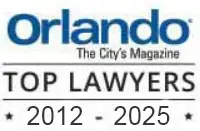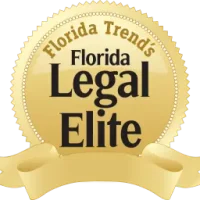Protecting Your Assets through Florida Bankruptcy Exemptions
Chapter 7 Bankruptcy is a Liquidation of Debts and Assets.
In a Chapter 7 bankruptcy, the filer liquidates debts and assets, so that at the end there is nothing owed and there is nothing owned. Any money that is derived from the sale of assets is used to satisfy the claims of creditors. This is one reason why bankruptcy should be carefully considered. There are exceptions to this rule.
One exception to liquidating your assets is where you choose to reaffirm a debt. For example, you and a creditor might agree to reaffirm a car loan, where you and the creditor both agree that you will continue paying the car loan, and that you will keep the car and own the car at the end of the car loan.
Another option to avoid surrendering or liquidating an asset is to utilize an exemption that allows an asset to be excluded from the Chapter 7 bankruptcy so that you can eliminate debts while keeping assets.
Speak with an experienced Florida attorney at our firm today.
Call 855-Kramer-Now (855-572-6376).
For example, if you have $1,000,000.00 in a 401k account, you would not want to surrender that account in a Chapter 7 Bankruptcy. By applying an exemption that applies to 401k accounts, you would not have to surrender that money, and you would still be able to file a Chapter 7 Bankruptcy.
What Property Can You Keep under Florida Bankruptcy Exemptions?
When you file for bankruptcy in Orlando, you can apply bankruptcy exemptions under Federal and Florida State laws to protect certain properties and assets.
The rules that govern what assets you can protect and which ones you cannot are complex. An experienced Florida bankruptcy firm can maximize your exemptions and seek to protect important assets.
What assets and properties can you protect? Call the TK Law Firm to determine what bankruptcy exemptions will apply in your case.
Commonly Used Florida Bankruptcy Exemptions Are:
The Homestead Exemption in Florida
Your primary residence, also known as your homestead, is protected by the Florida Constitution. A homestead is defined as a half acre or less area (inside a municipality) and 160 acres (outside a municipality). The value of the property does not factor into the equation.
In other words, you could own a homestead worth a billion dollars with no mortgage, and that property would be exempt from the claims of creditors in a bankruptcy or otherwise. On the other hand, even if you own a homestead, the first mortgage holder will have a claim against the property, regardless of whether you file bankruptcy.
If you file bankruptcy with the intent of keeping your homestead, you may exempt assets worth up to $1,000.00 per individual, or $2,000.00 for a couple. If you do not plan on keeping your homestead, you can keep as much as $4,000 in assets per individual, or $8,000.00 for a couple.
The team at the TK Law Firm can help you figure out how much of your homestead you can exempt.
Florida Bankruptcy Exemptions on Death Benefits, Insurance and Beyond
- Some forms of insurance and death benefits are exempt, but some forms are not. For instance, if you have been collecting benefits payable specifically to you (as opposed to the estate of the deceased person), those benefits may be exempt.
- Pensions and retirement plans like 401k, 403b, State Retirement, IRAs and SEPs may be exempt, but are not always exempt. Federal pensions are often protected.
- A good bankruptcy lawyer will also try to exempt some or all money that is in checking or savings accounts as wages that are exempt from the claims of creditors.
- Marital assets that are owned by a husband and wife, often titled as Tenants in the Entirety, are often exempt from the claims of creditors.
- Other Florida bankruptcy exemptions may include vehicles, support benefits, and certain basic personal property to ensure that you have enough to meet your basic, critical human needs.
Speak with an experienced Florida attorney at our firm today.
Call 855-Kramer-Now (855-572-6376).
Florida Bankruptcy Exemptions Attorneys: Help with the Next Steps
Even in this short (and vastly oversimplified) summary, you can probably tell that Florida’s bankruptcy exemption rules are complicated and confusing. Rather than deal with your complex debt situation on your own, request a free bankruptcy consultation with the TK Law Firm.
We can dig deep into your situation, maximize your asset protection, and carefully guide you through every step of the Florida bankruptcy process.











